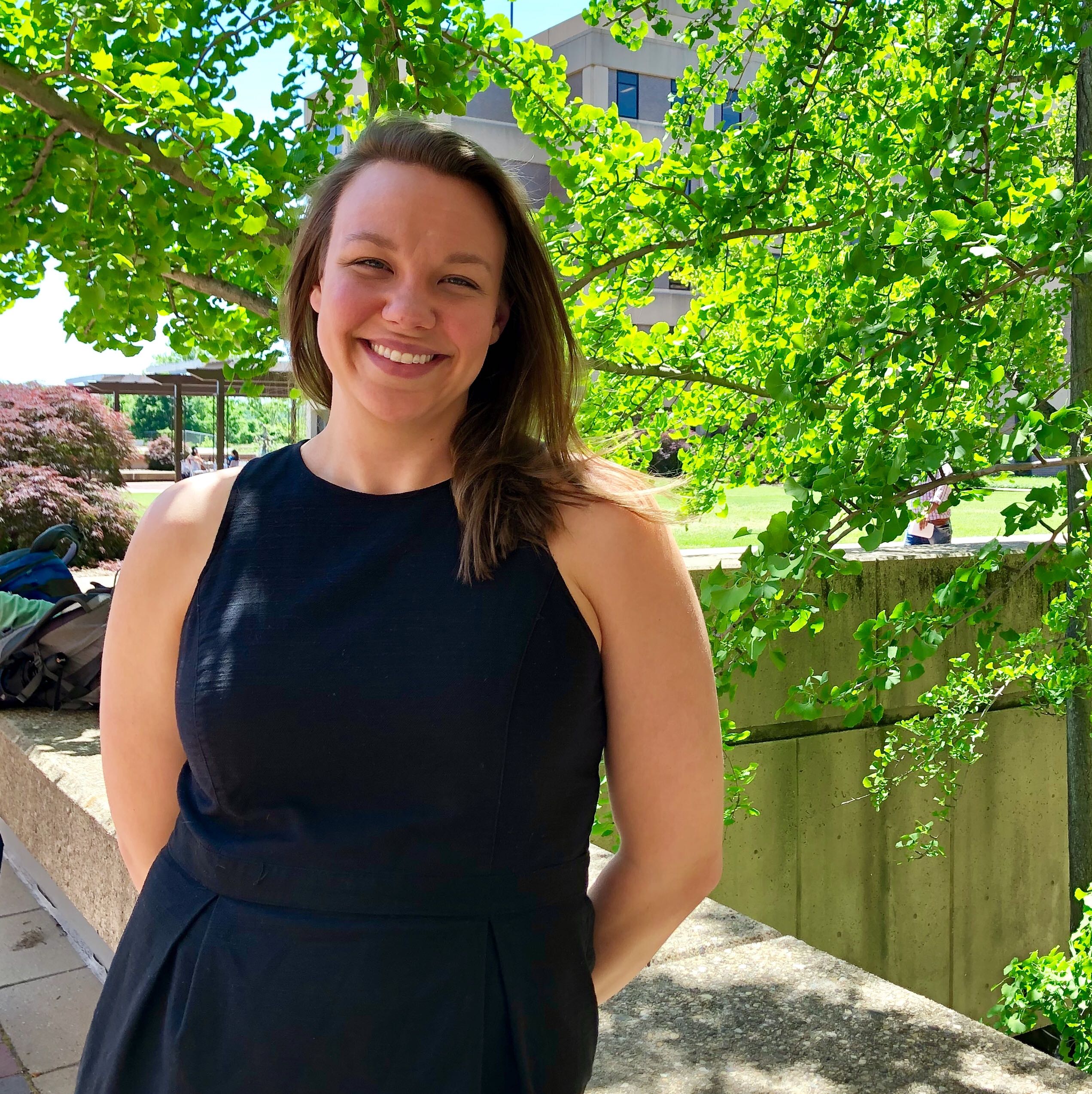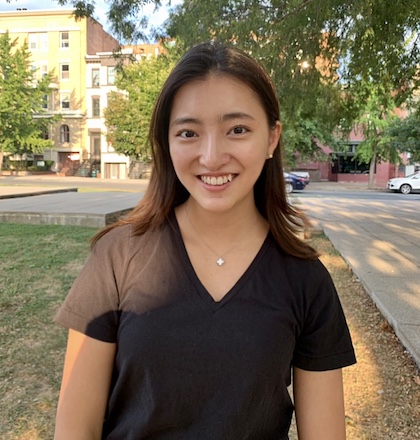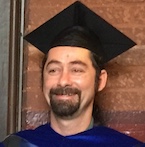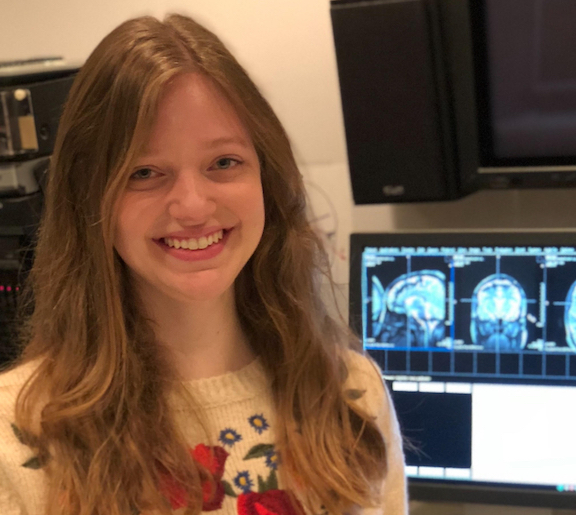Where the intersection of health and human development meets biomedical imaging, computational neuroscience, social psychology and prevention science.
Lead Study Investigators
Diana H. Fishbein, Ph.D.
 I utilize transdisciplinary methods and a developmental approach to understand interactions between neurobiological processes and environmental factors, and ways in which they influence intervention outcomes. The ultimate goal is to translate scientific findings to practice and policies designed to prevent mental health, emotional and behavioral problems.
I utilize transdisciplinary methods and a developmental approach to understand interactions between neurobiological processes and environmental factors, and ways in which they influence intervention outcomes. The ultimate goal is to translate scientific findings to practice and policies designed to prevent mental health, emotional and behavioral problems.
My research supports the premise that underlying neurobiological mechanisms interact with the quality of our psychosocial experiences and environmental contexts to alter trajectories either toward or away from risk behaviors. Moreover, there are indications that trajectories can be normalized with interventions targeted to these underling mechanisms.
Given the inherent translational nature of this research, I co-founded the National Prevention Science Coalition to Improve Lives, a national organization dedicated to the transfer of knowledge from the basic to the applied sciences as well as practical settings and public health policies.
View Detailed ProfileLearn about the NPSCVisit us @ the PTRAN
John W. VanMeter, Ph.D.
 I am currently the Director of Georgetown University’s research-dedicated 3T MRI facility, the Center for Functional and Molecular Imaging (CFMI), a position I've held since 2006. My primary expertise is in the development and implementation of multi-modal MR sequences for cognitive and biomedical science research.
I am currently the Director of Georgetown University’s research-dedicated 3T MRI facility, the Center for Functional and Molecular Imaging (CFMI), a position I've held since 2006. My primary expertise is in the development and implementation of multi-modal MR sequences for cognitive and biomedical science research.
Previously, I was Director of R&D at Sensor Systems, Inc. for 5 years, during which time I led the development of a commercial software package (MEDx) that is used at more than 300 research institutions worldwide in the analysis of multimodal data sets including structural MRI and fMRI, as well as one of the first FDA-cleared fMRI clinical analysis packages. I designed and developed the data transfer systems used for the NIH Pediatric Brain Development project, a longitudinal study that included MRI scanning of 500 children at seven sites across the country.
Later, I was the principal investigator of the NIH-funded Studies to Advance Autism Research and Treatment (STAART) center grant project, in which several MRI-based techniques including fMRI, diffusion tensor imaging (DTI), and MR spectroscopy were applied to investigate the neurobiological basis of autism. In the STAART project, I scanned nearly 150 children between the ages of 5 and 18, 65 of whom were between the ages of 6 to 10 years old, and about half were on the spectrum for autism.
I am also a co-investigator on a project led by a PI in Dr. Fishbein’s program examining differences in genetic expression and the changes in regional blood flow using arterial spin labeling following alcohol consumption.
Emma J. Rose, Ph.D
 I am a Research Assistant Rrofessor at Pennsylvania State University and the Associate Director of the for Translational Research on Adversity and Neurodevelopment
I am a Research Assistant Rrofessor at Pennsylvania State University and the Associate Director of the for Translational Research on Adversity and Neurodevelopment
My primary research focus is on using a translational neuroscience approach to delineate changes in brain structure and function associated with suboptimal developmental trajectories and leveraging that knowledge to help prevent high-risk outcomes for children, families and their communities.
Some key projects to which I have contributed include a longitudinal investigation of the neurodevelopmental correlates of substance use and abuse in adolescence, and a range of studies looking at the chronic and acute pharmacological effects of abused substances on the neural underpinnings of reward processing, among others.
Post Doctoral Scholars
Goldie Ann McQuaid, Ph.D.
Nicole Roberts, Ph.D.
Giorgia Picci, Ph.D.
Graduate Students
Shady El Damaty, M.Sc.
 I'm a PhD candidate in Neuroscience at Georgetown University laboring at the intersection between computational science, cognitive neuroscience, and biomedical engineering in the interest of the advancement of human society. My immediate preoccupation is to advocate for and contribute towards a harmonization of equitable scientific advancement with social transformation in order to sculpt a more peaceful, just and collaborative global culture.
I'm a PhD candidate in Neuroscience at Georgetown University laboring at the intersection between computational science, cognitive neuroscience, and biomedical engineering in the interest of the advancement of human society. My immediate preoccupation is to advocate for and contribute towards a harmonization of equitable scientific advancement with social transformation in order to sculpt a more peaceful, just and collaborative global culture.
Current Active Research Project
My doctoral dissertation is in the field of developmental cognitive neuroscience as applied to juvenile justice and violence prevention. This research is made possible by a National Institute of Justice Graduate Research Fellowship that provides funds to extend brain imaging into high-risk youth populations.
In this coming year (2018-2019), I will seek 50+ teen participants from Washington D.C. communities challenged with violence to participate in the NeuroYouths Study, a research project on the interaction between environmental adversity, teenage brain development and the formation of social preferences.
Personal WebsiteLearn more about NeuroYouths
Rachel Bernier
Wen Ren, B.S.
Research Assistants
Veronica Mucciarone
 I graduated from American University in May 2017 with a B.A. in Psychology, having completed an honors project in the Developmental Neuroscience Lab. Here at CFMI, my goal is to expand my knowledge of imaging data collection and analysis methods, as well as narrow my focus for when I apply to graduate school. Working with human subjects creates balance in my life, as in my free time I enjoy raising rodents (hamsters and chinchillas in particular). In everything I do, my motto is "play seriously."
I graduated from American University in May 2017 with a B.A. in Psychology, having completed an honors project in the Developmental Neuroscience Lab. Here at CFMI, my goal is to expand my knowledge of imaging data collection and analysis methods, as well as narrow my focus for when I apply to graduate school. Working with human subjects creates balance in my life, as in my free time I enjoy raising rodents (hamsters and chinchillas in particular). In everything I do, my motto is "play seriously."
Maria "Masha" Stoianavoa
 I graduated from Georgetown University in December 2016 with two BAs in Psychology and Linguistics. Before graduating, I worked at the Laboratory on Social and Affective Neuroscience at Georgetown; after graduating, I spent a year at the Center for Technology and Behavioral Health at Dartmouth College; currently, I'm an MRI Technician and Research Assistant at CFMI at Georgetown University. At CFMI, I love working with participants, yelling at computers, and learning more about cognitive-/social-/language-related neuroscience research as I prepare for graduate school in neuroscience. In my free time, I enjoy taking care of a perilously large plant collection, painting, yelling at computers, and playing video games very badly.
I graduated from Georgetown University in December 2016 with two BAs in Psychology and Linguistics. Before graduating, I worked at the Laboratory on Social and Affective Neuroscience at Georgetown; after graduating, I spent a year at the Center for Technology and Behavioral Health at Dartmouth College; currently, I'm an MRI Technician and Research Assistant at CFMI at Georgetown University. At CFMI, I love working with participants, yelling at computers, and learning more about cognitive-/social-/language-related neuroscience research as I prepare for graduate school in neuroscience. In my free time, I enjoy taking care of a perilously large plant collection, painting, yelling at computers, and playing video games very badly.
Kinney Van Hecke
 I graduated from UNC Wilmington with a BS & MS in chemistry with a focus in organic synthesis. While I was developing synthetic methods to make compounds that mimicked neurotransmitter structures, I found myself more interested in the human brain than the syntheses; and I set my sights on neuroscience. I currently work as an MRI technician and ADS Research Assistant in CFMI at Georgetown University. In my free time, I tutor high school & college students in math & chemistry, search for the best coffee & food in DC, and play beach volleyball.
I graduated from UNC Wilmington with a BS & MS in chemistry with a focus in organic synthesis. While I was developing synthetic methods to make compounds that mimicked neurotransmitter structures, I found myself more interested in the human brain than the syntheses; and I set my sights on neuroscience. I currently work as an MRI technician and ADS Research Assistant in CFMI at Georgetown University. In my free time, I tutor high school & college students in math & chemistry, search for the best coffee & food in DC, and play beach volleyball.
Mary Fesalbon
 I am a Seattle native and recent graduate of The Catholic University of America, where I completed a BA in Psychology. I currently hold two jobs as 1) an MRI Technician and Research Assistant at Georgetown University Medical Center and 2) the Resident Manager of The Northwest Center’s Maternity Home for women in crisis. Looking to the future, I hope to combine these two roles as a Clinical Psychologist. When I’m not scanning or taking care of babies, you can catch me at the Navy Yard working on my next trick at the flying trapeze.
I am a Seattle native and recent graduate of The Catholic University of America, where I completed a BA in Psychology. I currently hold two jobs as 1) an MRI Technician and Research Assistant at Georgetown University Medical Center and 2) the Resident Manager of The Northwest Center’s Maternity Home for women in crisis. Looking to the future, I hope to combine these two roles as a Clinical Psychologist. When I’m not scanning or taking care of babies, you can catch me at the Navy Yard working on my next trick at the flying trapeze.
Yewon Chun

Alumni
Valerie L. Darcey, Ph.D, M.S, R.DInterdisciplinary Program in Neuroscience (Ph.D, 2017), Georgetown University

My work aims to answer the overall question of how does diet and nutritional status impact the brain to modulate impulsive behavior?
To this end, I combine my training in human (clinical) nutrition with my doctoral training in neuroscience to examine the relationship between omega-3 fatty acid status and development of prefrontally-mediated impulse control healthy adolescents using functional and structural MRI.
Currently, as a post-doctoral fellow at the National Institutes of Health, I am interested in using positron emission tomography (PET) to study how body weight and fed/fasted status relate to striatal dopamine signaling and propensity to rely on habitual versus goal-directed behavior in adults.
Doctoral Dissertation: Investigating the Relationship Between Long Chain Omega-3 Fatty Acids and Prefrontal Cortex Development During Adolescence (August 2017)
Benson Stevens, Ph.DInterdisciplinary Program in Neuroscience (Ph.D., 2017), Georgetown University

Doctoral Dissertation: Genetic Influences of Dopamine and GABA on Adolescent Cognition (August 2017)
Erika Raven, Ph.DInterdisciplinary Program in Neuroscience (Ph.D, 2017), Georgetown University

Doctoral Dissertation: Reproducibility and Use of Myelin Imaging Methods for the Study of Adolescent Brain Development (July 2017)
Past Research Assistants
Macy Curell
 I graduated from George Mason University in 2017 with my B.S. in Psychology with a concentration in Human Factor Psychology. I am currently a research assistant at Georgetown University’s Center for Functional and Molecular Imaging with the purpose of learning as much as I can about neuroimaging, data collection, and analysis. I have a particular interest on the effects of sleep, or lack thereof, on the developing brain. My long-term goal is to use this experience to apply to graduate programs in Clinical Psychology.
I graduated from George Mason University in 2017 with my B.S. in Psychology with a concentration in Human Factor Psychology. I am currently a research assistant at Georgetown University’s Center for Functional and Molecular Imaging with the purpose of learning as much as I can about neuroimaging, data collection, and analysis. I have a particular interest on the effects of sleep, or lack thereof, on the developing brain. My long-term goal is to use this experience to apply to graduate programs in Clinical Psychology.
Rachel Schroeder
 Rachel joined the Women’s Mental Health Research Program in the Fall of 2018 as a graduate student in the Behavioral Neuroscience track of the Department of Psychology PhD program.
Rachel joined the Women’s Mental Health Research Program in the Fall of 2018 as a graduate student in the Behavioral Neuroscience track of the Department of Psychology PhD program.
In 2016, Rachel received her B.S. from Iowa State University in Psychology with minors in Biology and Women’s Studies. After graduating, she worked as a research assistant in the Department of Neurology at Georgetown University and science intern for the Society for Women’s Health Research where she studied the use of MR techniques and role of sex differences in the brain.
Rachel is interested in understanding the neurological, cognitive, and genetic changes occurring throughout the menopausal transition. In pursuit of this research she was awarded the NSF Graduate Research Fellowship.
